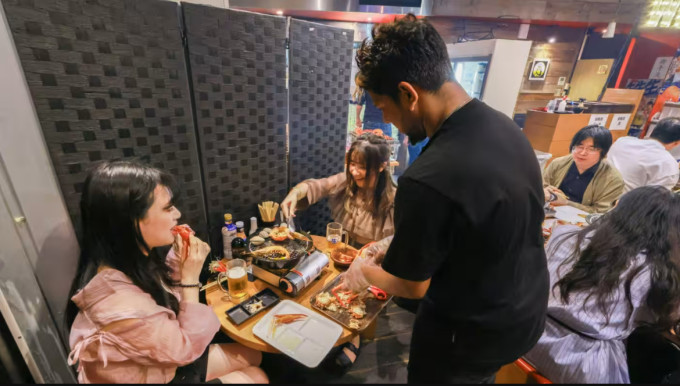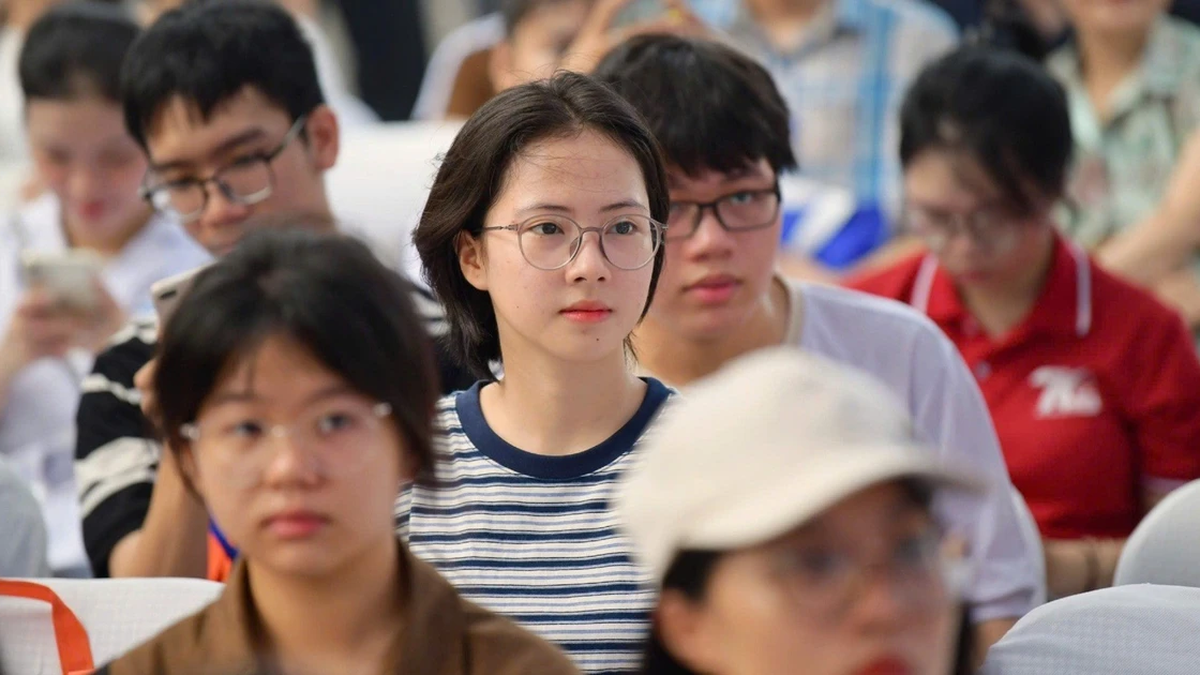
Tamatebako, a seafood buffet and BBQ restaurant in Tokyo's popular nightlife district of Shibuya, is charging different prices for Japanese and foreign visitors. A 60-course seafood buffet with unlimited drinks on weekdays costs 5,980 yen (about 1.1 million VND) for locals, but 6,980 yen (about 1.3 million VND) for foreigners.
"Even if the price is higher than locals, I don't mind," said a Hong Kong tourist, adding that if he ate similar dishes back home, he would have to pay double.
Japanese restaurant chains are adjusting their business strategies to cater more to tourists . Miki Watanabe, president and CEO of major restaurant chain Watami, said that Japanese people rarely buy 3,000 yen (about 540,000 VND) sirloin beef skewers, but "tourists coming to Japan see the price and are willing to open their wallets." Since November last year, Watami has only opened restaurants in places where it predicts high demand from foreign tourists. This has helped Watami's revenue increase by 76% in April, a record.
However, this strategy is considered difficult to expand without attracting domestic diners. The weak yen promotes tourism but at the same time affects the purchasing power of Japanese people. Prices of essential goods are constantly increasing due to the increased cost of imported raw materials, and workers are not getting a pay raise to compensate for the costs. Therefore, the dual-price solution is expected to help balance the interests of the two groups of customers.
Tamatebako owner Shogo Yonemitsu admits that the price difference could be controversial and that it might be difficult for larger chains to adopt the idea. Charging higher prices to foreigners is not uncommon in low-income Asian countries, but it is unheard of in Japan. But he says that for a small business like Tamatebako, it is a necessary balancing act between benefiting from the booming tourism industry and not pushing prices out of reach for locals, maintaining a customer base even when tourism wanes.
Lawyer Shohei Furukawa, an expert on consumer law, said that if restaurants clearly explain prices to customers, charging double prices is not illegal. "It all depends on how consumers perceive it," Furukawa said.
TH (according to VnExpress)Source: https://baohaiduong.vn/nha-hang-nhat-ban-nhin-mat-khach-tinh-tien-384993.html
























![[Photo] National Assembly Chairman Tran Thanh Man visits Vietnamese Heroic Mother Ta Thi Tran](https://vphoto.vietnam.vn/thumb/1200x675/vietnam/resource/IMAGE/2025/7/20/765c0bd057dd44ad83ab89fe0255b783)








































































Comment (0)